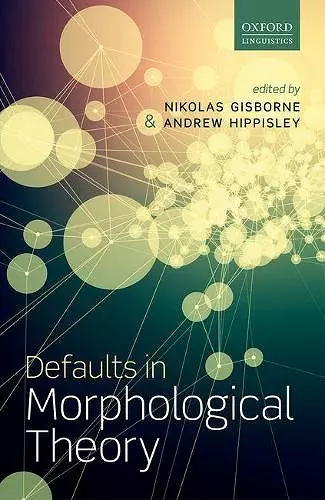Defaults in Morphological Theory
Andrew Hippisley editor Nikolas Gisborne editor
Format:Hardback
Publisher:Oxford University Press
Published:26th Oct '17
Currently unavailable, and unfortunately no date known when it will be back

Chapters in this volume describe morphology using four different frameworks that have an architectural property in common: they all use defaults as a way of discovering and presenting systematicity in the least systematic component of grammar. These frameworks - Construction Morphology, Network Morphology, Paradigm-function Morphology, and Word Grammar - display key differences in how they constrain the use and scope of defaults, and in the morphological phenomena that they address. An introductory chapter presents an overview of defaults in linguistics and specifically in morphology. In subsequent chapters, key proponents of the four frameworks seek to answer questions about the role of defaults in the lexicon, including: Does a defaults-based account of language have implications for the architecture of the grammar, particularly the proposal that morphology is an autonomous component? How does a default differ from the canonical or prototypical in morphology? Do defaults have a psychological basis? And how do defaults help us understand language as a sign-based system that is flawed, where the one to one association of form and meaning breaks down in the morphology?
ISBN: 9780198712329
Dimensions: 242mm x 163mm x 26mm
Weight: 656g
330 pages